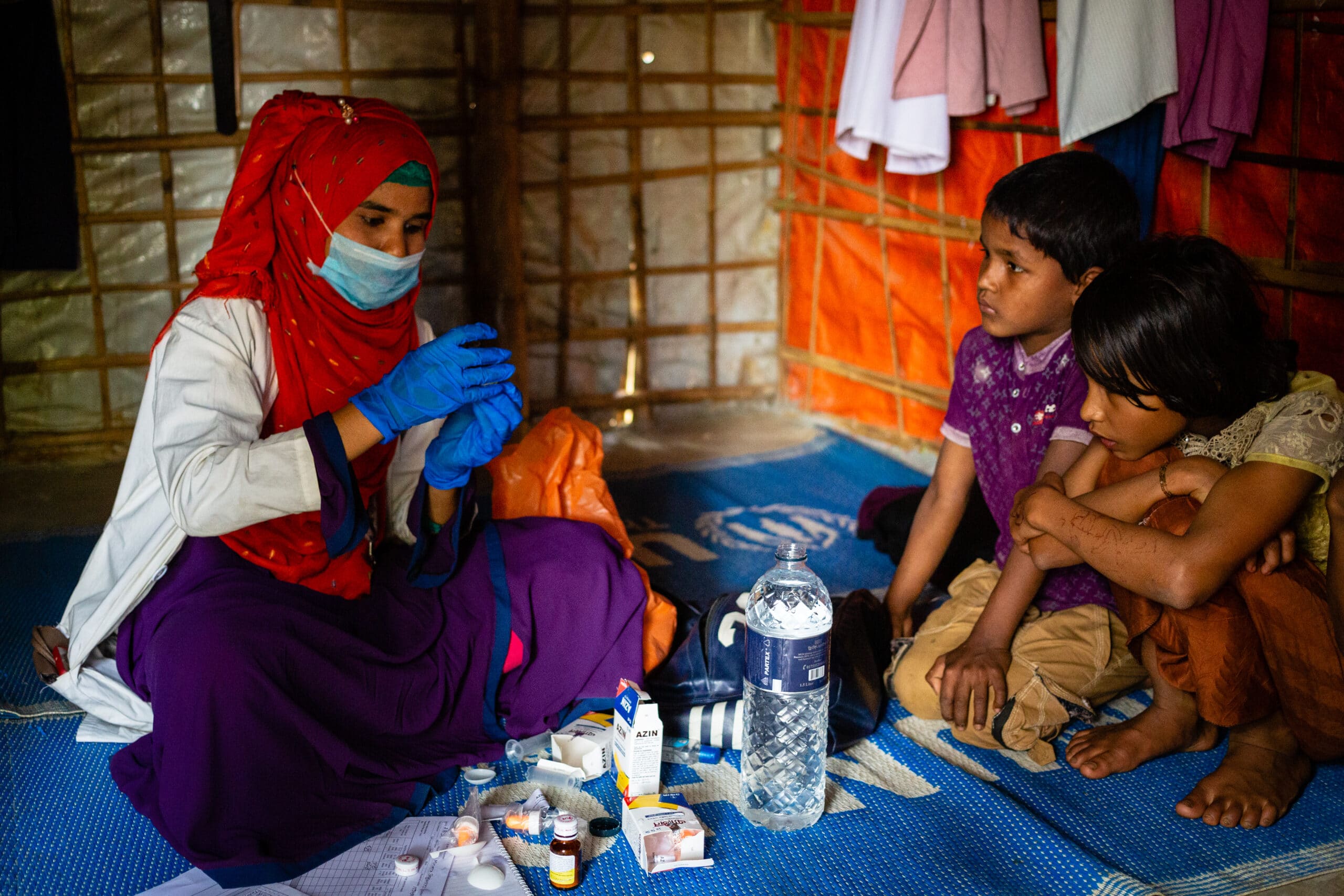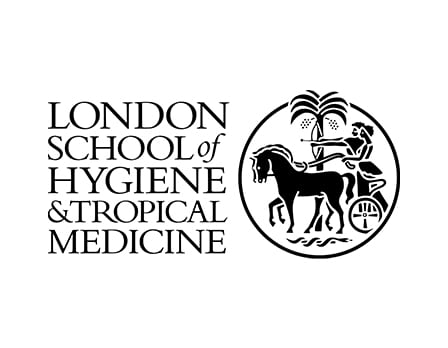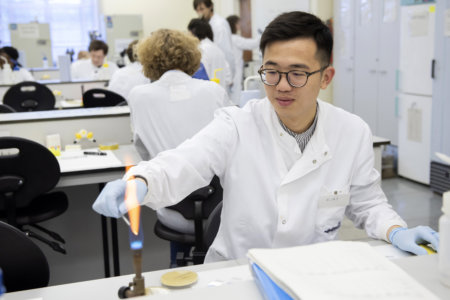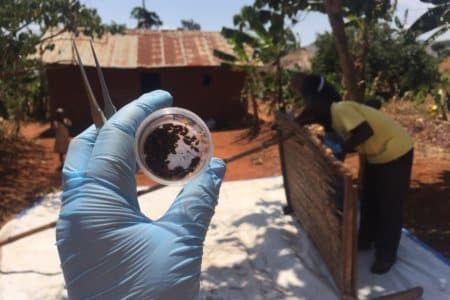Daily, the news bombards us with reports of armed conflicts, natural disasters, disease outbreaks, and more harrowing tragedies. Many communities suffer from ill health, vulnerable to the ever-changing climate, both politically and environmentally. Watching these events unfold leaves us asking how to stop or combat this.
Seeing the growing requirement to deal with the health needs in humanitarian crises effectively, the London School of Hygiene & Tropical Medicine (LSHTM) — awarded the Queen’s Anniversary Prize for Higher and Further Education in 2021 for its world-leading work on COVID-19 and pandemic preparedness — has launched its new distance learning Health in Humanitarian Crises programme.
Its many accolades explain why LSHTM is ideally suited to develop such a programme. The US News Best Global Universities Subject Ranking 2022 places the school second in the world for Public, Environmental and Occupational Health and fourth for Infectious Diseases. ShanghaiRanking 2022 ranks it #3 in the world and #1 in the UK for Public Health, while Times Higher Education REF2021 Impact Scores ranks LSHTM as #1 for the critical measure of impact, providing the highest quality contribution to the economy or society.
Much of this is due to LSHTM’s decades of experience. It has been teaching since 1899 and delivering online learning programmes since 1998. Today, over 3,000 students from more than 150 countries study with LSHTM online. Hence, the institution is perfectly poised to develop the new course.
The Health in Humanitarian Crises programme, welcoming its first cohort in October 2023, provides students with the knowledge and skills to improve the health of populations, communities and particular groups within them when affected by such emergencies. “Especially following the COVID-19 response, I realised that I needed the space and time to think more critically about the challenges I was seeing in the field,” says Bhargavi Rao, Associate Professor and Programme Co-Director of the course.
“There were so many questions I wanted to ask but being 100% operational meant I was constantly juggling projects and responding to new emergencies. Hence two years ago, I joined LSHTM as an Associate Professor in Humanitarian Health with a view to developing research in public health crises and complex emergencies.”
Now Bhargavi works part-time with Médecins sans Frontières (MSF) as a malaria and infectious diseases specialist, using her experience in the field to inform her role as the co-developer and co-lead for the new distance learning programme. “I’ve spent the last 10 years working at a humanitarian NGO and know that there’s a real thirst for a course like this,” she says.

LSHTM’s new programme equips students with the knowledge and skills to improve the health of populations, communities and particular groups within them when these populations are affected by humanitarian crises. Source: London School of Hygiene & Tropical Medicine.
The Health in Humanitarian Crises programme develops practical skills, enabling participants to explore real-world case studies and simulations. With this, students develop critical thinking, problem-solving, and decision-making abilities necessary to address complex challenges in the field. To ensure that programme materials remain relevant and up-to-date, Bhargavi says that the team developing the course has both operational and academic backgrounds.
The world-class faculty teaching the programme are leaders in public health and humanitarian action. They have a wealth of experience and research knowledge to share. These educators ensure students get a global perspective on health and humanitarian crises while connecting them with a diverse community from all backgrounds and cultures.
“The assessments will be similarly grounded in very tangible competencies, and so we hope our students will graduate ready to hit the ground running, if they’re new to the field or perhaps give new perspectives for those already working in this sector” says Bhargavi.
“In addition, the Health in Humanitarian Crises Centre will give students connections to ongoing research and responses to emerging crises through its events and networks.” The Centre is filled with health veterans across all LSHTM faculties, with strong links to humanitarian agencies such as MSF and Save the Children.

The Health in Humanitarian Crises programme deepens our understanding of humanitarian issues and increases one’s potential for career development in public health. Source: London School of Hygiene & Tropical Medicine.
The number of modules you would need to complete depends on the type of qualification you choose. It can be a master’s, postgraduate diploma, or postgraduate certificate. The programme’s format is adaptable to different individuals. “The flexibility of the distance learning format allows students to register perhaps for just one module as a taster or to start with a postgraduate certificate qualification (i.e. four modules only) to see how they adjust to working and studying with an option to extend to a postgraduate diploma (eight modules) or a full master’s (eight modules and a project).” says Bhargavi.
For the master’s and diploma programmes, students will complete three elective modules, allowing them to explore the wide range of specialist health teaching at LSHTM. “We have developed three bespoke modules for this programme, intended to follow the humanitarian project cycle to enable our students to design, manage and evaluate humanitarian health responses,” Bhargavi adds. “In addition, we’ll cover principles of humanitarian action, the ethics of health in humanitarian crises, key policy issues and global architecture of humanitarian response.”
Flexibility for this programme is extended beyond just the choice of qualification — students may study part-time, online, from anywhere in the world so that their learning does not affect their work life. Your career progression will need not lose any momentum. “We are very excited to offer this new programme for both newcomers wishing to enter this field and experienced staff looking for opportunities to extend their skills,” says Professor Francesco Checchi, Programme Co-Director. “The content focuses on real-life examples and dilemmas and aims to address the operational, programmatic and technical needs in such crises.”
Find out more about the Health in Humanitarian Crises programme.
Follow the London School of Hygiene & Tropical Medicine on Facebook, Twitter, LinkedIn, Instagram and YouTube.













